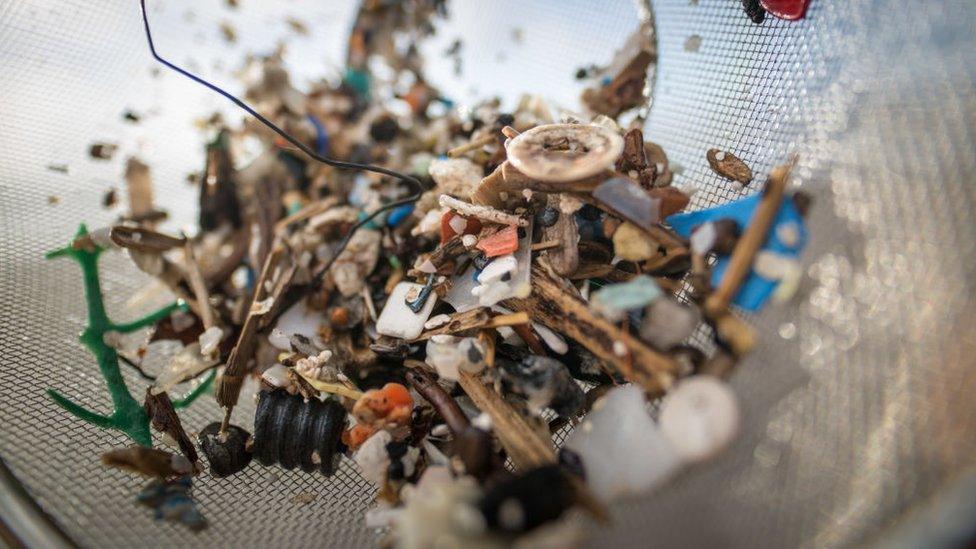'More still to be done' says Bristol charity as single-use plastic ban starts
- Published
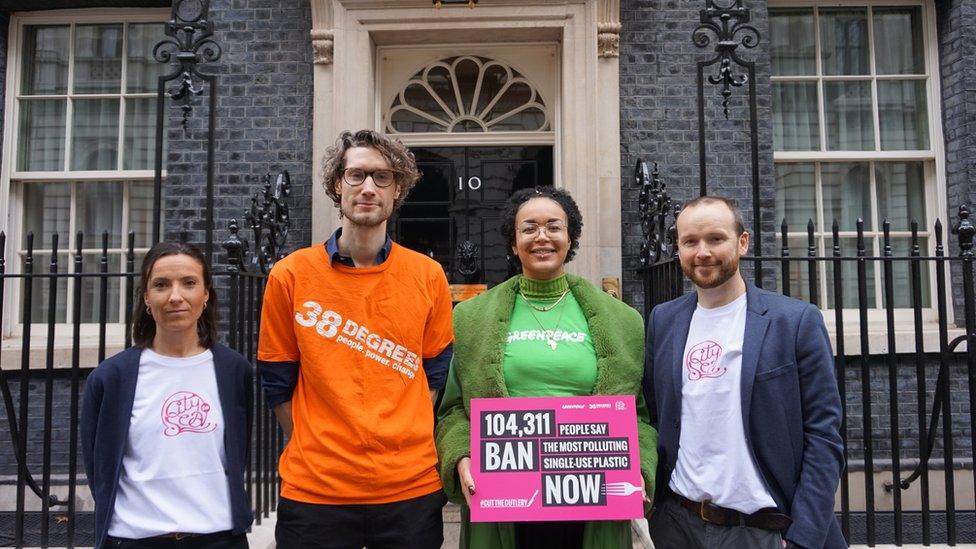
City to Sea campaigners campaigned hard to bring the ban on single use plastics into force
A charity has said more needs to be done to cut plastic pollution, as a ban on single use items comes into force.
City to Sea, based in St Pauls, Bristol helped get the new ban on single use plastics, external approved by the government but say more needs to be done quickly.
The ban, which comes into force on 1 October, includes items like plastic cutlery, plates and polystyrene trays.
Steve Hynd, policy manager, said: "Despite this ban coming in we know the plastic crisis is actually worsening.
"This is a very exciting week for City to Sea because we have been campaigned for a number of years to get some of the most polluting single use plastics banned.
"A couple of years ago we launched our petition asking for this and an incredible 118,000 responded and it forced Defra to launch its consultation which had 50,000 of our supporters respond."
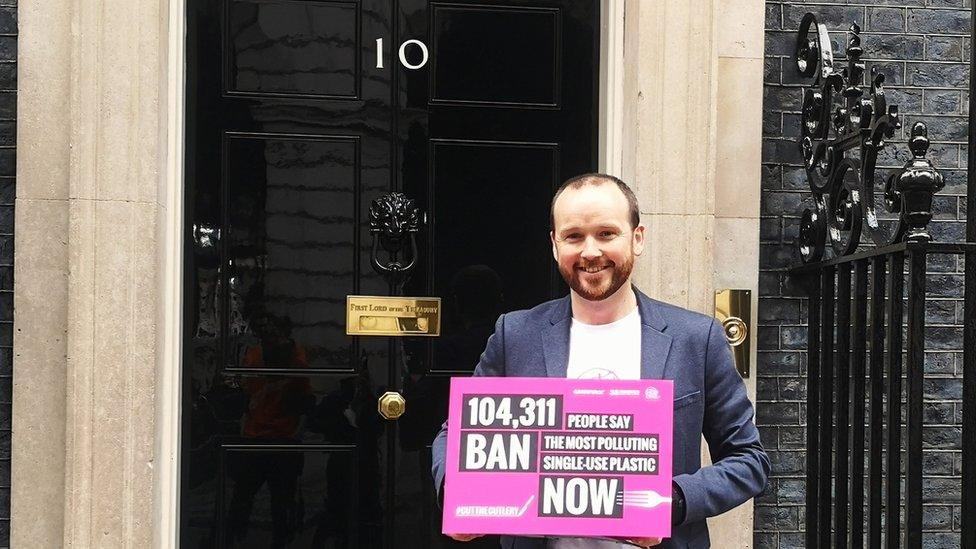
Mr Hynd said more needed to be done to cut plastic pollution
He continued: "It left no room for doubt that people wanted to see this ban and they wanted to see it quickly."
'So much more to do'
Items banned by the government include plates, bowls, trays, containers, cutlery and balloon sticks.
Similar bans have already been made in Scotland, while single-use plastic straws, stirrers and plastic stemmed cotton buds were already banned in England in 2020.
Government figures suggest that 1.1 billion single-use plates and more than four billion pieces of plastic cutlery are used in England every year.
The policy manager added though that they will be "doubling back" to the government asking them to go further.

What plastics are banned?
single-use plastic plates, trays and bowls
single-use plastic cutlery or balloon sticks
polystyrene containers

Mr Hynd said: "We very much welcome the fact that billons less plastic cutlery will end up getting littered but there is so much more that should be happening.
"We're doubling back to the government asking them to go further, we want to see them introduce a deposit return scheme that we know is an effective way to drive up recycling."
Mr Hynd, who is also deputy leader of the green party for Stroud District Council, added that the government should also set ambitious targets about recycling.
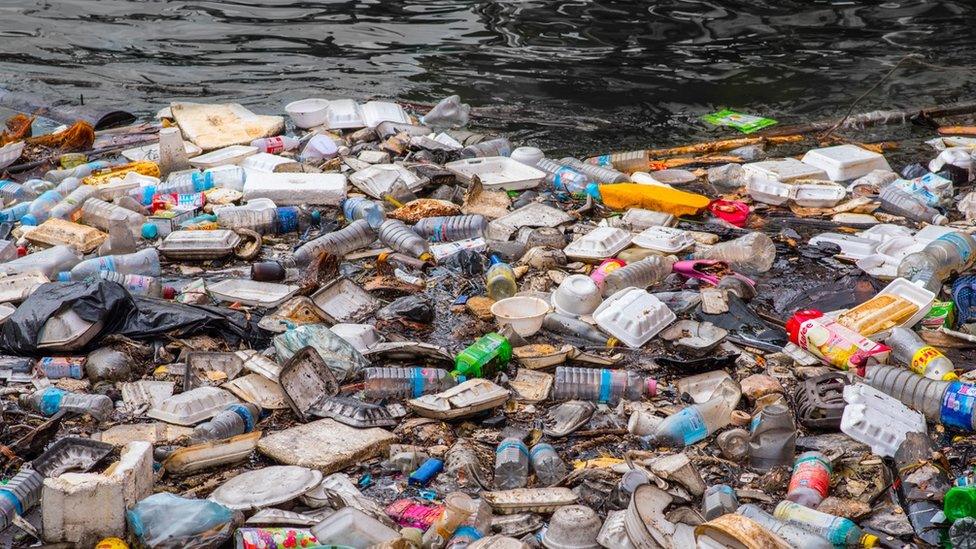
Single use plastic is being banned by the government from October 1
Mr Hynd said: "They are the items we find on our beaches, in our rivers and in our oceans but crucially as well as that, they are things that already have alternatives available so we don't need them at all.
"Hopefully all businesses have got to a position that they can find reusable alternatives so they find ways to reuse packaging or if they need to single use alternatives, so that might mean the fish and chip shop will use wooden forks rather than plastic forks.
"My understanding is that trading standards will be enforcing this but to begin with it will be very much a case of them informing businesses, raising awareness and helping them to make sure these bans are implemented across Britain in a way that doesn't penalise British businesses trying to do the right thing."
Defra have been approached for comment.

Follow BBC West on Facebook, external, X, external and Instagram, external. Send your story ideas to: bristol@bbc.co.uk , external
Related topics
- Published9 January 2023
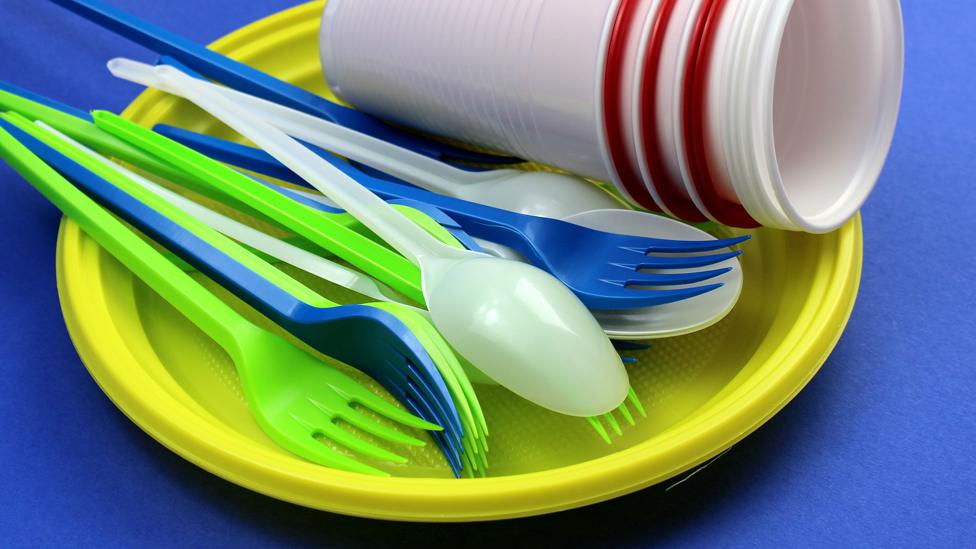
- Published16 June 2021
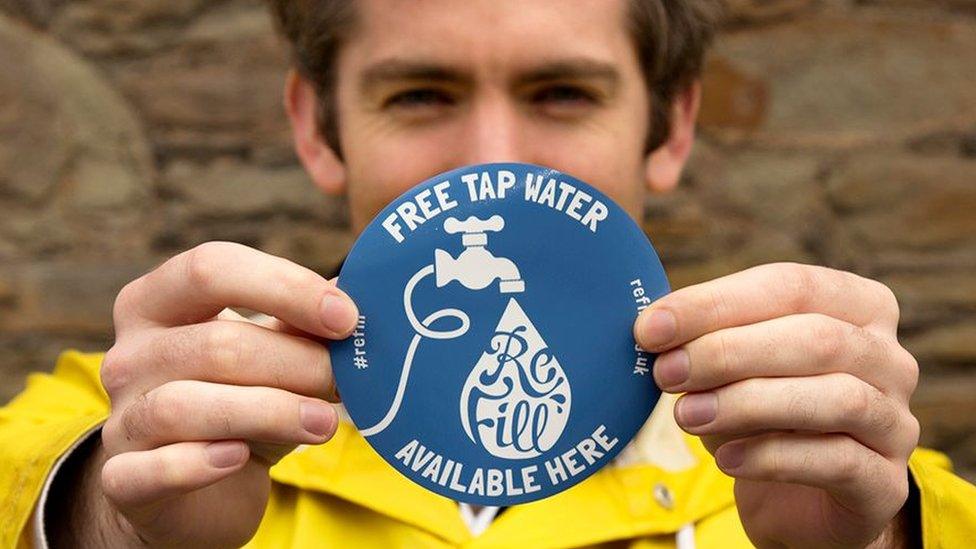
- Published3 June 2021
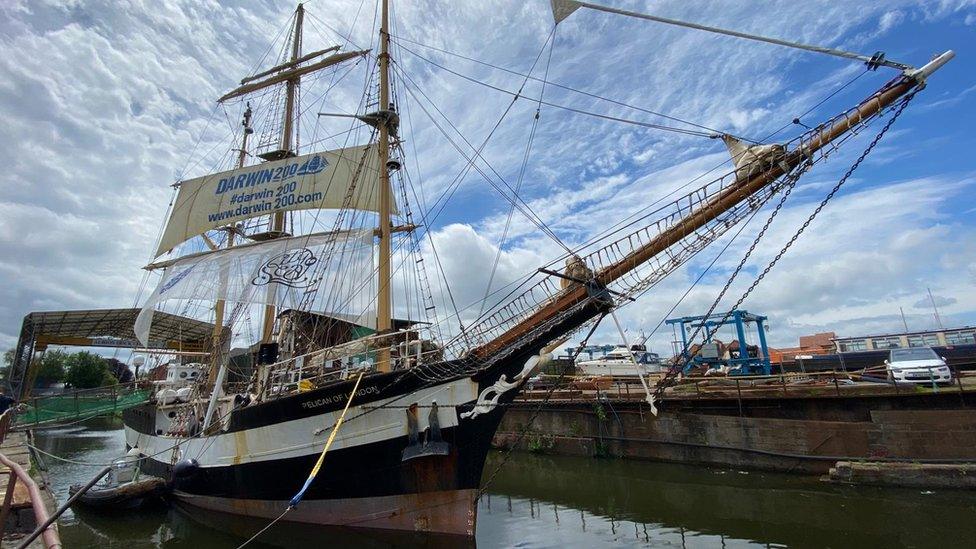
- Published18 May 2021
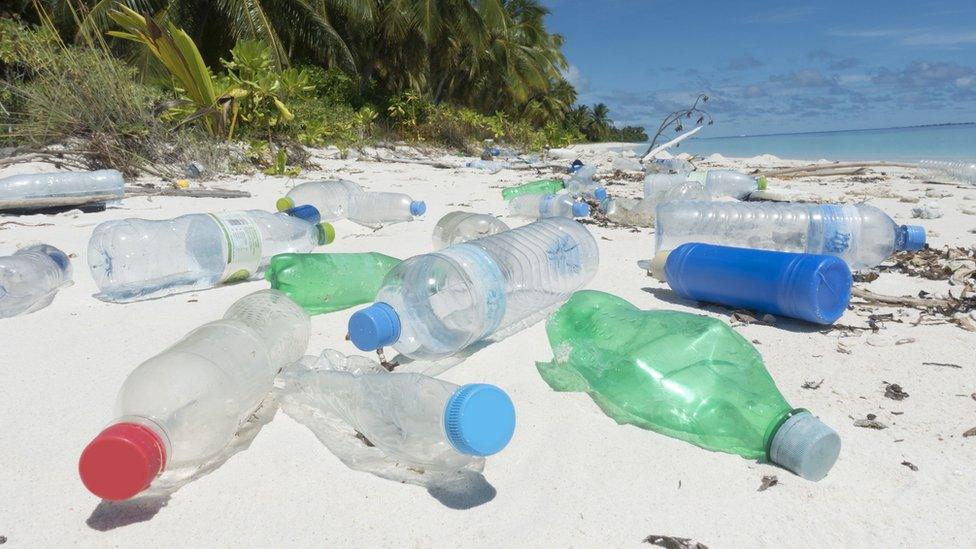
- Published28 April 2021
